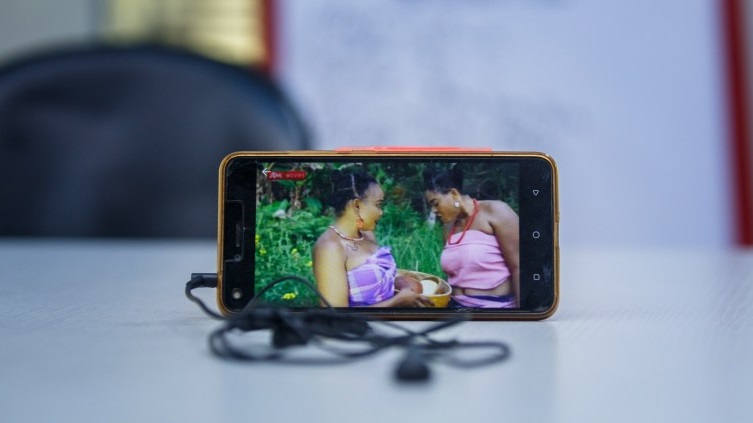We all have them. Those apps we open without thinking. Not because we need anything in particular, but because they feel… safe, in some…
Nigerian broadcasting agency seeks to regulate local content on Netflix, iROKOtv, pay TV


This article is brought to you as part of a new partnership between two of Africa's foremost news and information platforms for African tech startups, Ventureburn and Techpoint Africa.
Nigeria’s National Broadcasting Commission (NBC) has released an amended version of the sixth edition of its broadcast code that could put the local investments of subscription or Pay television (TV) and video-on-demand platforms at risk.
The new code (opens as a PDF), which requires that all online broadcasters are registered with the Commission, will prevent pay TV and streaming platforms from making content exclusive and compel them to sub-license content at prices it will regulate.
The broadcast code was released following recommendations of the Committee on the Reform of the NBC and the approval of President Muhammadu Buhari.
According to the NBC’s code, these distribution platforms will be forced to sub-license their content to other broadcasters in Nigeria. This, it states, will create room for competition in Nigeria’s movie industry.
Every broadcaster must license its broadcast and/or signal rights in any genre of programming to another broadcaster in Nigeria if:
- The genre of program(s) enjoy(s) compelling viewership by Nigerians
- It relates to a product or service that is objectively necessary to be able to compete effectively on a downstream market
- It is likely to lead to the elimination of effective competition on the downstream markets; and
- The refusal is likely to lead to consumer deprivation.
- Any platform that contravenes this provision will be given the chance to comply or risk a fine of ₦10-million ($25,773).
Should streaming, pay-TV platforms worry?
Recall that platforms like Netflix have licensed a lot of local content from some Nigerian movie producers, and it acquired exclusive rights to Lionheart.
Hopes for more locally produced Netflix originals came when the streaming giant launched Netflix Naija and subsequently began production of Nollywood originals.
The likes of iROKOtv and Africa Magic have also invested a lot of exclusive/original content from local movie producers in Nigeria.
With these regulations, they will be required to license their exclusive content to other broadcast media in Nigeria, and cannot enter an exclusive deal in their contract.
According to Jason Njoku, CEO of video-on-demand platform, iROKOtv, if these regulations are implemented, it will not make sense for several pay TV and streaming providers to invest in the production of local original content in Nigeria.
Nigeria’s creative industry has been plagued with issues of piracy and intellectual property infringement that have not been dealt with, and NBC’s code raises a number of legal questions.
The global convention for IP rights was established with the World Intellectual Property Organisation (WIPO), but every sovereign nation can decide to create their own country-specific laws. For Nigeria, these are the Copyright Act and the Patent and Designs Act.
The NBC was created by a military decree in 1992 and later became an Act of the Nigerian National Assembly to regulate Nigeria’s broadcast industry but there’s no provision for NBC to regulate copyrights of others.
According to Timi Olagunju, tech lawyer and policy expert, Nigeria’s Copyright Act allows a content producer to grant to any distributor, and the NBC has no legal right to determine who should acquire rights to such content.
Though the Copyright Act allows content producers to license their content either partially or exclusively, is it not an infringement on the rights of the producer if NBC says broadcasters cannot acquire exclusive content?
“For this regulation to hold water, the NBC has to go to the Nigerian National Assembly for the amendment of the Copyright Act. There, it will have to go through first, second and third readings, committee stages, and a public hearing,” Timi says.
While Olagunju believes this move might not see the light of the day, he suggests that Nigeria’s entire creative industry should unite and engage the government early on to prevent stifling regulations.
The original version of this article appeared on Techpoint Africa on 10 June. See it here.
Featured image: Techpoint Africa

